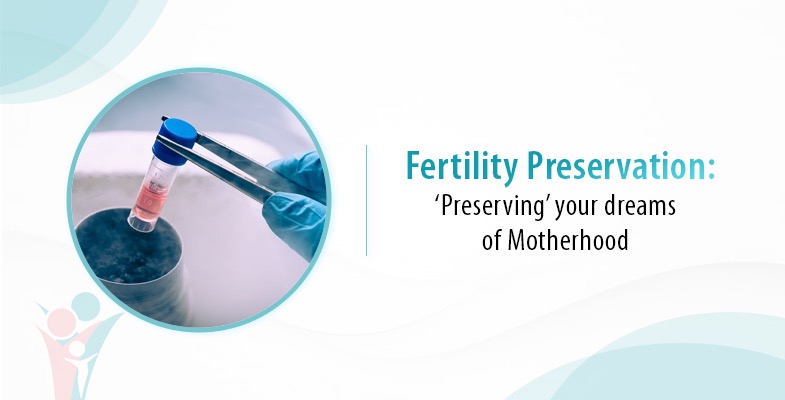
Breast cancer is regarded as the most prevalent malignancy in women and usually, the incidence is higher among older women, a majority diagnosed post-menopause. However, a large number of young women too are diagnosed with breast cancer during their reproductive lifespan. A lot of these patients experience difficulty conceiving after cytotoxic chemotherapy and/or hormone therapy.
With increasing positive outcomes in breast cancer treatment thanks to rapid advances in methods and techniques in modern medicine, it is becoming more and more relevant to consider fertility preservation in these patients. Fertility preservation is “the process of saving or protecting eggs, sperm, or embryo” to enable a person to use them to conceive in future.
The key to successful fertility preservation in cancer patients is early counseling and a prompt referral to a reproductive specialist. This gives the patients and their spouses/kin adequate time to make an informed decision on an appropriate method of fertility preservation, since there are a whole host of linkages between cancer diagnosis and fertility to consider and it can be really overwhelming.
What are available options of fertility preservation for breast cancer patients?
The currently used methods include: Cryopreservation of embryos; Oocytes cryopreservation; Gonadotropin-releasing hormone agonist treatment before and during chemotherapy; Ovarian transposition.
The most suitable method of fertility preservation is usually arrived at following a threadbare discussion of all the pros and cons between patients and doctors.
The entire process of fertility preservation following a breast cancer diagnosis can be traumatizing and confusing for couples. Men can bank their sperm without much ado, but for women, it’s a little more complicated. Cryopreservation of embryos is a commonly used technique these days for preserving fertility for use in assisted reproductive technology like IVF or in-vitro fertilization.
Who else can benefit from fertility preservation?
Individuals afflicted with certain illnesses or disorders which affect fertility could also benefit from fertility preservation. These include:
- Those who have been exposed to toxic chemicals
- Those suffering from endometriosis
- Those having uterine fibroids
- Patients needing treatment for an autoimmune disease
- Those having a genetic disorder affecting fertility
- Women who push back childbearing
Studies have shown that women diagnosed with breast cancer who have completed their treatment, “had no increased risk of relapse” if they delivered a baby following conception through IVF techniques. Overall, there is “no clear evidence” that ovulation induction or IVF increases the risk of breast cancer. The same studies on breast cancer patients also reveal that pregnancy and childbirth are not known to increase the risk of relapse.


